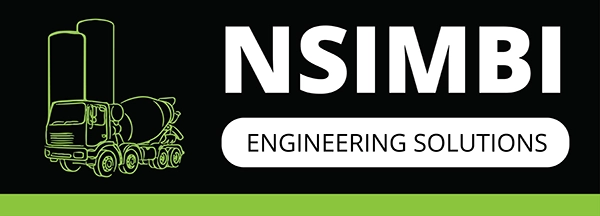Nsimbi Engineering‘s ready mix concrete trucks are subject to a myriad of regulations and standards aimed at ensuring safety, environmental protection, and operational efficiency. Let’s explore how these vehicles navigate regulatory compliance and uphold industry standards.
1. Vehicle Safety Regulations: Ready mix concrete trucks are subject to stringent safety regulations to protect operators, passengers, and other road users. These regulations govern aspects such as vehicle dimensions, weight limits, braking systems, lighting, and visibility aids. Compliance with safety standards is essential to prevent accidents and minimize risks associated with the operation of ready mix concrete trucks on public roads.
2. Environmental Compliance: Environmental regulations govern the handling, transportation, and disposal of materials used in concrete production, including cement, aggregates, and water. Concrete trucks must comply with regulations related to air quality, water pollution, noise emissions, and waste management. Measures such as the use of eco-friendly concrete mixes, spill prevention measures, and proper cleaning procedures help ensure environmental compliance and minimize the ecological footprint of concrete production and delivery operations.
3. Occupational Health and Safety Standards: These concrete trucks are subject to occupational health and safety regulations aimed at protecting workers involved in concrete production, transportation, and delivery. These regulations cover areas such as personal protective equipment (PPE), safe operating procedures, hazard communication, and emergency response protocols. Compliance with occupational health and safety standards is crucial to prevent workplace injuries and ensure the well-being of employees throughout the concrete supply chain.
4. Quality Control Requirements: Quality control regulations govern the production and delivery of ready mix concrete to ensure that it meets specified standards for strength, durability, and consistency. Ready mix concrete trucks must adhere to quality control procedures, including regular testing of concrete batches for compressive strength, slump, air content, and other properties. Compliance with quality control requirements helps maintain the integrity of concrete structures and ensures customer satisfaction with the performance of ready mix concrete.
5. Transportation Regulations: Ready mix concrete trucks are subject to transportation regulations that govern vehicle operations, including driver qualifications, hours of service, vehicle inspections, and load securing requirements. Compliance with transportation regulations helps ensure the safe and efficient delivery of ready mix concrete to construction sites while minimizing risks associated with vehicle accidents, fatigue, and mechanical failures.
6. Permitting and Licensing Requirements: Ready mix concrete trucks may require permits and licenses to operate in certain jurisdictions, particularly when transporting oversized loads or hazardous materials. Compliance with permitting and licensing requirements ensures legal compliance and facilitates smooth operations without interruptions or penalties. Proper documentation and record-keeping are essential to demonstrate regulatory compliance and maintain regulatory approvals for ready mix concrete truck operations.
In conclusion, ready mix concrete trucks navigate a complex regulatory landscape encompassing vehicle safety, environmental protection, occupational health and safety, quality control, transportation, and permitting requirements. By adhering to regulatory compliance standards, these vehicles uphold industry best practices, mitigate risks, and ensure the safe, environmentally responsible, and efficient delivery of ready mix concrete to construction sites. Continued vigilance and adherence to regulatory requirements are essential to maintain the integrity and sustainability of ready mix concrete truck operations in the construction industry.

